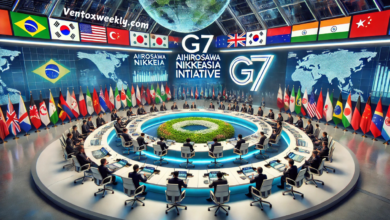How 3PL Supports Sustainability in the Food and Beverage Industry

Sustainability is no longer just a buzzword—it’s a priority for businesses and consumers alike, especially in the food and beverage industry. As supply chains become more complex, Third-Party Logistics (3PL) providers are stepping up to make a big difference. By adopting sustainable practices like reducing waste, optimizing delivery routes, and embracing eco-friendly packaging, 3PL providers help food and beverage companies meet their green goals. Here’s how.
1. Reducing Waste in the Supply Chain
Waste is a major concern in the food and beverage industry. From spoilage during transport to inefficiencies in storage, unnecessary waste can harm the environment and a company’s bottom line.
How 3PL Helps:
- Advanced Inventory Management: 3PL providers use technology to monitor stock levels, ensuring products are rotated efficiently and expire less often.
- Temperature-Controlled Logistics: Cold-chain solutions keep perishable items fresh from farm to fork, reducing spoilage.
- Smarter Forecasting: 3PL companies leverage data analytics to predict demand accurately, preventing overproduction and excess inventory.
For example, a 3PL can help a bakery avoid producing too much bread, ensuring unsold loaves aren’t in landfills.
2. Optimizing Delivery Routes
Delivery trucks are essential for getting food and beverages to customers, but they also contribute to carbon emissions. Efficient routing is key to cutting down fuel usage and environmental impact.
How 3PL Helps:
- Route Optimization Software: 3PL providers use algorithms to find the fastest, most fuel-efficient delivery paths.
- Consolidated Shipping: Combining multiple deliveries into one trip reduces the number of trucks on the road.
- Real-Time Tracking: GPS systems help drivers avoid traffic and reduce idling times, saving fuel.
Take the example of a juice manufacturer. By partnering with 3PL Georgia, they can ensure deliveries are made in fewer trips, cutting both costs and emissions.
3. Eco-Friendly Packaging Solutions
Packaging is a huge part of the food and beverage supply chain—and often, it’s the most visible sign of a company’s commitment to sustainability. Unfortunately, traditional materials like plastic can be harmful to the environment.
How 3PL Helps:
- Sourcing Sustainable Materials: Many 3PL providers partner with suppliers offering biodegradable, recyclable, or reusable packaging options.
- Right-Sizing Packages: Avoiding oversized boxes and excessive fillers reduces waste and shipping costs.
- Reverse Logistics: 3PLs can handle the collection of reusable packaging, ensuring it returns to the supply chain instead of ending up in landfills.
For example, a coffee brand could work with a 3PL to ship beans in compostable bags, showing customers their commitment to reducing plastic waste.
Why Sustainability Matters
Consumers today want more than great products—they want to support companies that care about the planet. By working with 3PL providers who focus on sustainability, food and beverage businesses can:
- Lower their carbon footprint.
- Reduce operating costs.
- Build trust with eco-conscious customers.
Final Thoughts
Sustainability in the food and beverage industry isn’t just good for the planet—it’s good for business. By reducing waste, optimizing delivery routes, and adopting eco-friendly packaging, 3PL providers are helping companies make a positive impact.
Whether you’re a small organic farm or a global beverage brand, partnering with a 3PL can be the key to achieving your sustainability goals. After all, every step toward a greener supply chain brings us closer to a healthier planet.
See Also: Self-Defense for Women: Why Every Woman Should Consider Taking a Class.
FAQs
1. What is a 3PL provider, and how does it help with sustainability?
A 3PL (Third-Party Logistics) provider manages supply chain operations like storage, transportation, and delivery. They support sustainability by reducing waste, optimizing delivery routes to cut emissions, and offering eco-friendly packaging solutions.
2. How do 3PL providers reduce waste in the food and beverage industry?
3PL providers use advanced inventory management, temperature-controlled logistics, and demand forecasting to minimize spoilage and overproduction, reducing waste in the supply chain.
3. What technologies do 3PL providers use for delivery route optimization?
3PL providers use GPS tracking, real-time data, and route optimization software to plan the most fuel-efficient and timely delivery routes, reducing carbon emissions and transportation costs.
4. What types of eco-friendly packaging solutions do 3PL providers offer?
3PL providers offer biodegradable, recyclable, and reusable packaging options. They also implement right-sizing techniques to minimize excess materials and support reverse logistics for reusable packaging.
5. Why is sustainability important for the food and beverage industry?
Sustainability is crucial for reducing the environmental impact of food production and distribution. It also builds trust with eco-conscious consumers and helps businesses save costs through efficient, green practices.




